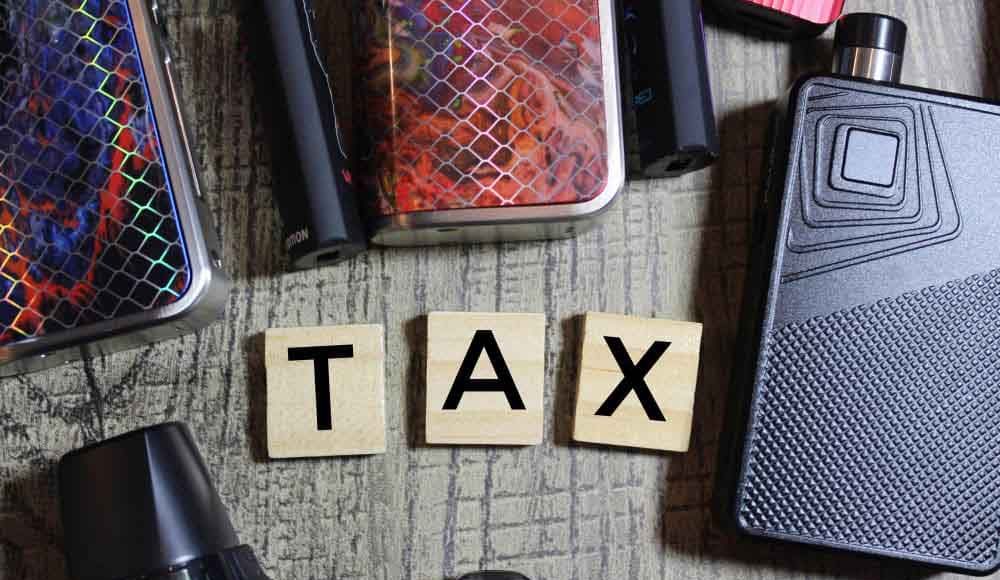Much to the disapointment of French vapers and tobacco harm reduction (THR) experts alike, it has been recently revealed that France is planning a 38% tax hike on e-liquids. The increase has been proposed by MP Charles de Courson, and would equate to a flat-rate tax of €0.15 per milliliter on all e-liquids, regardless of nicotine content. Vaping Post journalists based in France have reported that the reason for this flat rate is to prevent customers from circumventing the law.
To this effect, all 50ml e-liquid bottles would now cost €27.50, and the 10ml ones would cost €7.40 on average. FiVape, a leading French vape advocacy group, warned that this tax could deter smokers from switching to vaping, a widely recognized tool for quitting smoking, adding that taxing e-liquids undermines public health efforts by making the most effective smoking cessation tool less affordable. It is a known fact that besides the reduction in harm from tobacco, another incentive for smokers to switch to vapes is the fact they spend less on vapes than they would on cigarettes. Hence increasing the price of e-liquids could discourage smokers from switching.
Real-world examples demonstrate that high vape taxes are counterproductive, often driving consumers to the black market rather than reducing overall smoking rates. In Australia, for instance, strict vaping regulations and high taxes have fueled a thriving illicit market, with unregulated products readily available to consumers and youth. Similarly, in the U.S., high vape taxes in states like New York and California have led many vapers to purchase untaxed products online or across state lines, avoiding local restrictions. These examples suggest that heavy taxation on vaping products does not curb demand but instead drives consumers to unsafe, unregulated alternatives.
Attacks on the vaping industry?
According to FiVape, this tax proposal is the result of lobbying by the tobacco industry, which aims to slow the growing popularity of vaping. The group said that the rise of vaping has caused the tobacco industry to lose millions of customers in France, prompting aggressive tactics to curb vaping’s momentum. Since 2019, these efforts have already succeeded in halting the sharp decline in smoking rates.
Sadly, the tax hike will disproportionately affect independent vape companies, which are the most impacted by the price increase. Meanwhile disposable vapes, which are headed for a ban, will only see a 7.5% price increase. FiVape argues that the tobacco industry, which controls just 15% of the vaping market, stands to benefit from the new regulations as they push closed-system products like disposable vapes, limiting consumer choice.
Another loss for French vapers
In other unfortunate news, SOVAPE, an association dedicated to promoting smoking harm reduction, has announced its dissolution following a series of setbacks. A prominent example is the refusal of local market research company BVA to conduct its annual survey on vaping perceptions in France, as a result of a new contract preventing it from working with vape-related entities, marking the end of a longstanding collaboration. This has hampered SOVAPE’s efforts to assess public attitudes toward vaping, which has deteriorated between 2019 and 2023.
Its final survey in early 2024 revealed that 79% of respondents viewed vaping as an effective smoking cessation tool, and 62% reported improved quality of life after switching to vaping. While 27% still believed the misinformation that vaping is as harmful or worse than smoking.
Founded in 2016, SOVAPE’s mission was to foster dialogue on reducing smoking risks, mainly through advocating for vaping as a harm reduction tool. However, increasing political censorship, slander, misinformation, and behind-the-scenes pressures from lobbyists have obstructed its work. These challenges culminated in SOVAPE’s inability to continue its efforts, which had once been impactful, including hosting three Vape Summits and engaging with health authorities to promote vaping as a smoking cessation tool.
SOVAPE’s remaining funds will be donated to organizations aligned with its mission, including AIDUCE (a vaping user rights group), Vape du Cœur (helping vulnerable smokers quit), and the Pasteur Institute (for scientific research). The association leaves behind a legacy of videos from its three Vape Summits, with its website maintained for another decade to preserve these resources.
France Releases New Smoke-Free Plan Which Includes Counterproductive Vape Restrictions








